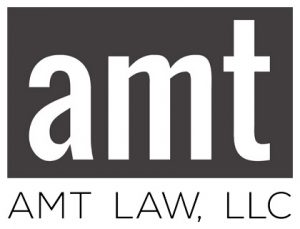New Illinois Law Regarding Restrictive Employment Covenants
–By Eileen Collins-Blackwell, Attorney At Law—
New I llinois Law Regarding Restrictive Employment Covenants
llinois Law Regarding Restrictive Employment Covenants
On August 13, 2021, Governor Pritzker signed into law amendments to the Illinois Freedom to Work Act. This legislation establishes changes to employer non-compete and non-solicitation agreements. Here are the highlights:
I. Income Restrictions
This new law places new restrictions on which employees that can be required to sign non-compete agreement and non-solicitation agreements. In particular, Starting January 1, 2022, non-compete agreements with employees who earn less than $75,000.00 per year will not be enforced by Illinois courts. Additionally, non-solicitation agreements with employees who earn less than $45,000.00 per year will not be enforced by Illinois courts. These amounts will increase every five years.
II. Other Restrictions on Enforceability
Non-compete and non-solicitations agreements will be unenforceable against employees who are terminated or furloughed due to the Covid-19 pandemic, UNLESS the employer will pay the employer’s base salary for the duration of the restriction period.
III. Additional Consideration Required for Non-compete and Non-solicitation Agreements

This is where things get a bit sticky for employers. The new law states that employers must receive “adequate consideration” in exchange for a non-c
ompete or non-solicitation agreement. “Adequate consideration” can be defined in two different ways. First, an employee can work for the employer for at
least two years after signing the agreement. Alternatively, the employer can provide additional benefit to the employee such as financial or professional benefits.
What will be difficult for employers is that absent the two years of service, it will be somewhat difficult to determine whether an employer has provided “additional consideration” sufficient to justify the non-compete or non-solicitation agreement. Consequently, employers who wish to have a non-compete or non-solicitation agreement will need to take care when drafting their employment agreements to make sure that the consideration needed to justify the non-compete or non-solicitation agreement is properly described in their Agreement.
IV. Timing and Access
One additional thing to note, the employee must be advised in writing that they are advised to consult with an attorney before entering into the covenant and the employer must provide the employee with at least fourteen calendar days to review the agreement before signing it. However, an employee can take less than 14 days to sign the agreement if they so choose, and employees are not required to seek legal counsel prior to signing the agreement.
V. What does this mean for Illinois employers?
Illinois courts have long taken a harsh eye to employers seeking to enforce restrictive covenants such as non-compete and non-solicitation provisions where the employee worked for the employer for less than two years. Additionally, Illinois has already required that a restrictive employment covenant be reasonable in terms of scope, duration and geography. With this new legislation, it is more important than ever that employment agreements in Illinois are reviewed by competent legal counsel before being presented to employees. AMT Law Group has attorneys available that can review or draft your employment agreements to help ensure your agreements are enforceable in Illinois. We would love to assist you!

